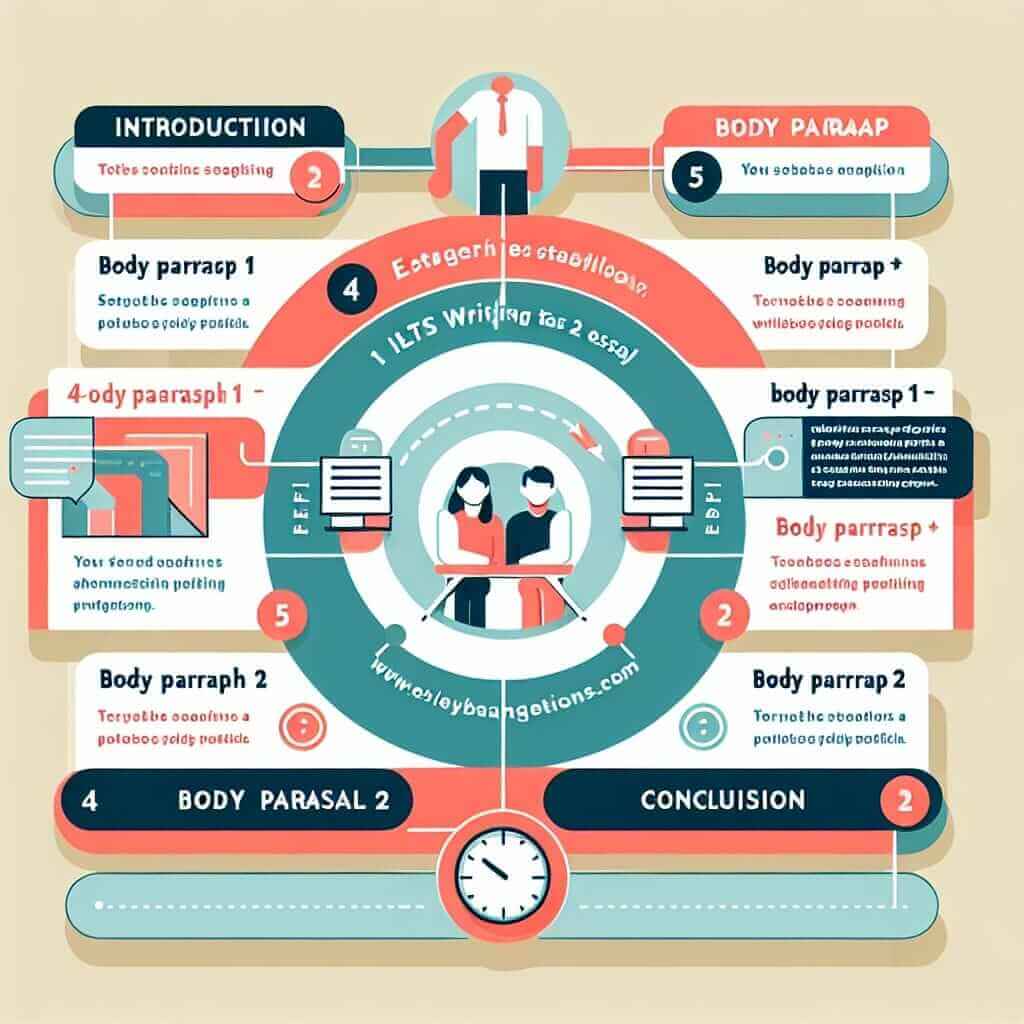As an IELTS instructor with over two decades of experience, I’ve seen countless students grapple with the intricacies of IELTS Writing Task 2. This section of the exam often feels like the most daunting, but it doesn’t have to be. This comprehensive guide will equip you with the knowledge and strategies to approach Task 2 confidently and boost your overall IELTS score.
Understanding IELTS Writing Task 2
This section evaluates your ability to present a clear and well-structured argumentative essay in response to a given prompt. You’ll be assessed on:
- Task Response: Addressing all aspects of the prompt and presenting a well-developed position.
- Coherence and Cohesion: Organizing your ideas logically, using cohesive devices to guide the reader smoothly through your argument.
- Lexical Resource: Demonstrating a wide range of vocabulary appropriate for the topic.
- Grammatical Range and Accuracy: Using a variety of sentence structures correctly.
Crafting Your Winning IELTS Essay
Let’s break down the process of writing a high-scoring IELTS Writing Task 2 essay step-by-step:
1. Analyze the Question
- Identify the Keyword(s): Underline the key topic(s) the prompt is asking you to discuss.
- Determine the Task: Is it asking for an opinion, a discussion of both sides, a problem-solution approach, etc.?
Example Prompt:
“Some people believe that the best way to reduce crime is to impose stricter punishments. Others, however, believe that other measures would be more effective. Discuss both these views and give your own opinion.”
- Keywords: crime, stricter punishments, other measures
- Task: Discuss both sides of the argument and provide your opinion.
2. Plan Your Essay
Don’t rush into writing! A solid plan is essential for a coherent essay.
- Brainstorm Ideas: Jot down points for both sides of the argument, even if the prompt doesn’t explicitly ask for both.
- Develop Your Thesis: Formulate a clear opinion based on your brainstorming.
- Structure Your Essay: Organize your points into a logical structure (usually 4-5 paragraphs).
Example Plan:
Introduction:
- General statement about crime and its impact.
- Paraphrase the prompt and present your thesis (e.g., “While stricter punishments may deter some crime, a more holistic approach encompassing preventative measures is likely to be more effective.”).
Body Paragraph 1:
- Discuss the argument for stricter punishments (deterrent effect, public safety).
- Provide examples or evidence.
Body Paragraph 2:
- Discuss alternative measures (addressing root causes, rehabilitation programs, social reforms).
- Provide examples or evidence.
Conclusion:
- Summarize both sides of the argument.
- Restate your opinion in a clear and concise way.
3. Write with Clarity and Cohesion
- Use Topic Sentences: Start each body paragraph with a clear sentence that introduces the main idea of the paragraph.
- Develop Ideas Logically: Use transitions (e.g., however, furthermore, in addition) to smoothly connect your sentences and paragraphs.
- Use a Range of Vocabulary: Don’t repeat the same words or phrases. Use synonyms and demonstrate your lexical range.
- Maintain Grammatical Accuracy: Pay close attention to verb tenses, subject-verb agreement, and punctuation.
4. Provide Supporting Evidence
- Real-World Examples: Use examples from current events, history, or even personal experience (if relevant) to support your points.
- Statistics or Studies: While not always required, citing statistics can add weight to your arguments. If using statistics, be sure to attribute them to a reliable source.

5. Proofread Carefully
- Check for Errors: Leave a few minutes at the end to proofread your essay thoroughly for any grammatical errors, spelling mistakes, or awkward phrasing.
- Read Aloud (Optional): Reading your essay aloud can help you identify areas that may sound unnatural or need improvement.
Tips for Success
- Practice Regularly: The more you practice writing essays under timed conditions, the more comfortable and confident you’ll become.
- Get Feedback: Ask a teacher, tutor, or fluent English speaker to review your writing and provide constructive criticism.
- Learn from Model Essays: Analyze high-scoring IELTS essays to understand their structure, language use, and argumentation techniques.
Conclusion
Mastering IELTS Writing Task 2 is achievable with focused effort and the right strategies. By understanding the assessment criteria, planning your essay carefully, and writing clearly and persuasively, you can achieve a band score that reflects your true writing ability. Good luck!